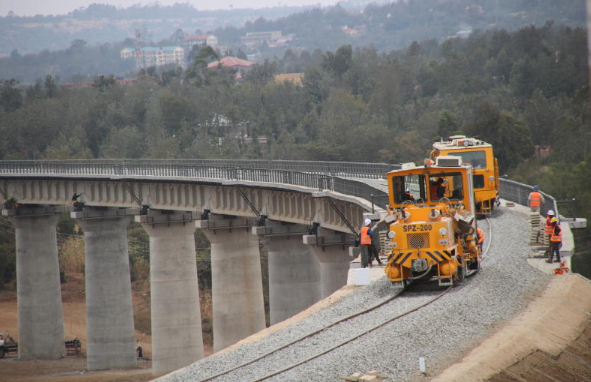×
The Standard e-Paper
Smart Minds Choose Us

The second phase of the Standard Gauge Railway (SGR) from Nairobi to Naivasha, commonly referred to as Phase 2A, is now complete.
This follows the completion of the Ngong section which had delayed for close to a year following a dispute over compensation to affected land owners.